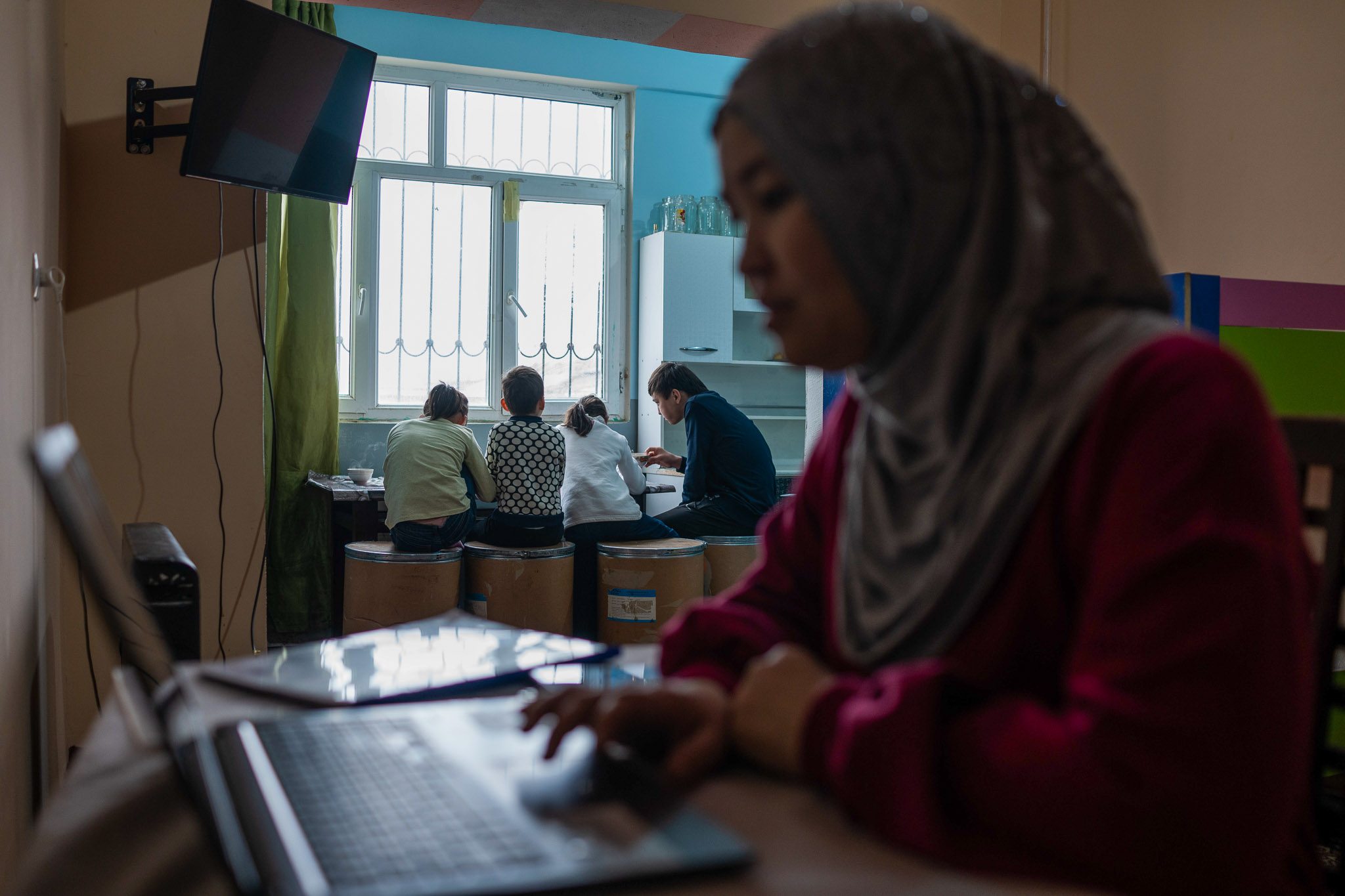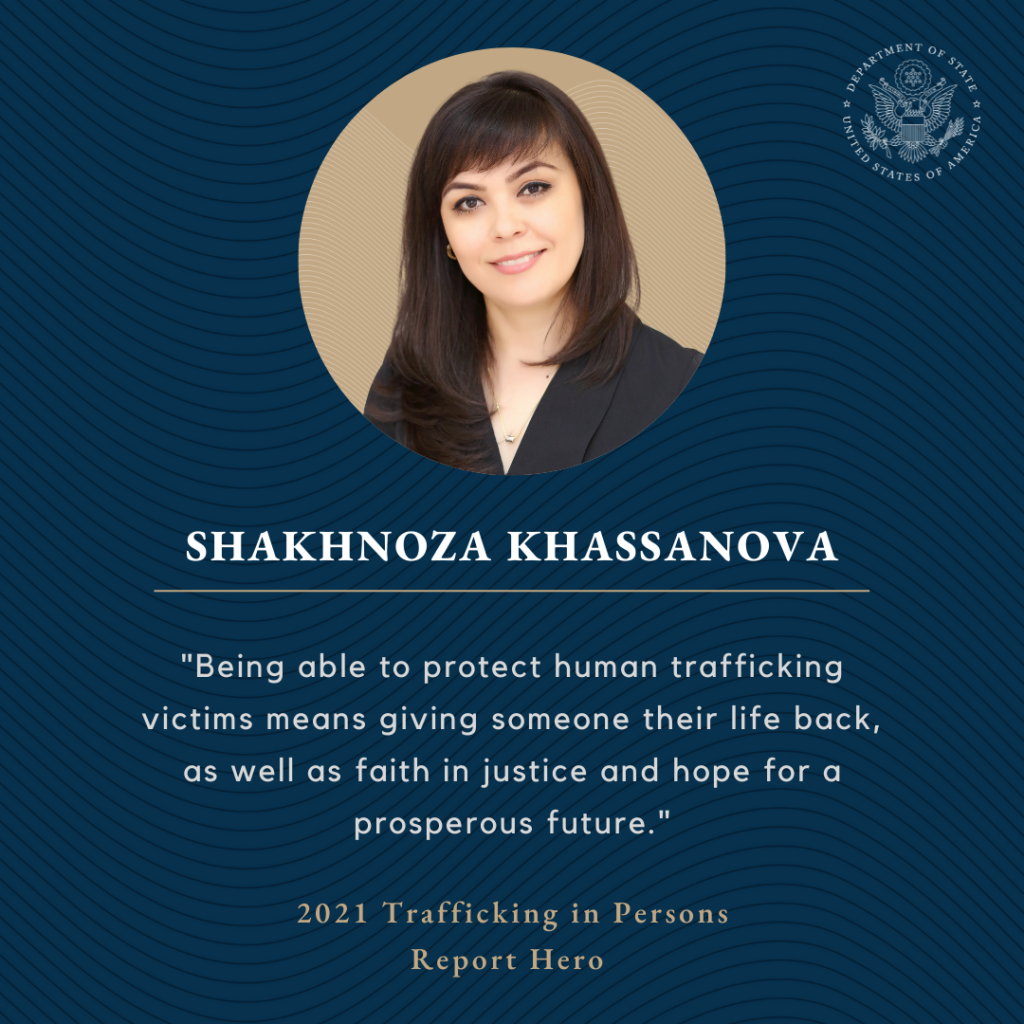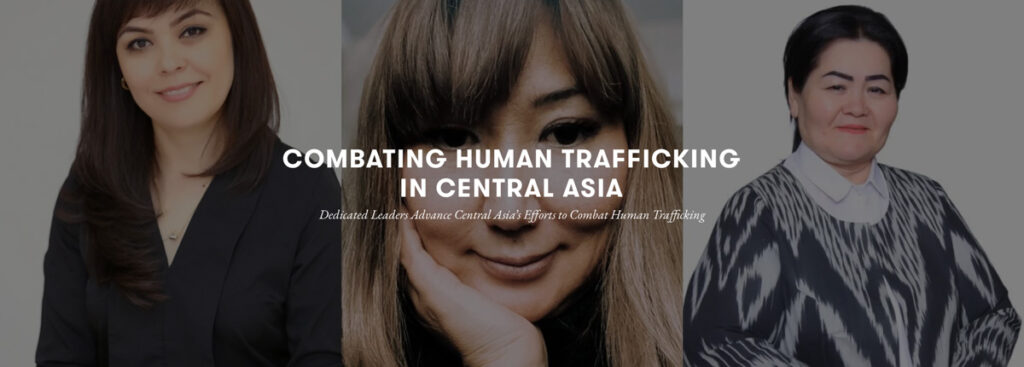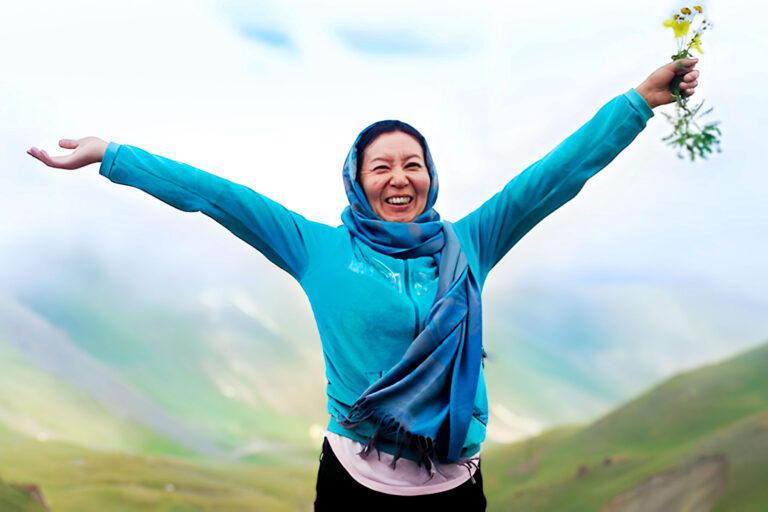
Dedicated leaders advance Central Asia’s efforts to combat human trafficking
This story was originally published by USAID Kyrgyz Republic.
Millions of Central Asians leave their homes each year in search of more lucrative job opportunities. However, due to insufficient protection of migrants’ rights and safe migration routes, many are at risk of exploitation.
For the past 20 years, the U.S. Department of State has published an annual Trafficking in Persons (TIP) Report that examines the trends, challenges, and progress made globally on addressing human trafficking. It includes rankings and recommendations for countries to prevent and reduce trafficking. Tier 1 is the best rating and Tier 3 is the lowest.
For two decades, USAID has partnered with the countries of Central Asia to prevent, detect and address human trafficking, investing more than $20 million to raise awareness and provide assistance to trafficking survivors in the region.
In 2021, Kazakhstan, the Kyrgyz Republic and Uzbekistan moved from the TIP Report’s Tier 2 Watch List (countries whose governments do not fully meet the minimum standards but are making significant efforts to bring themselves into compliance with those standards) to a Tier 2 ranking. For three consecutive years, Tajikistan has maintained a Tier 2 ranking.
Decades of commitment, partnership, and action have yielded encouraging results. In 2021, four of the five Central Asian countries are now Tier 2, a landmark achievement for the region. The TIP Report also includes recognition of individuals who have dedicated their lives to the fight against human trafficking.
Shakhnoza Khassanova from Kazakhstan was one of eight individuals honored in the 2021 TIP Report. Shakhnoza is the director of the nongovernmental organization Legal Center for Women’s Initiatives, “Sana Sezim”, a partner of the USAID-Safe Migration in Central Asia activity. USAID’s Safe Migration project strengthens the mutual accountability and effectiveness of governments, NGOs, and the private sector to prevent trafficking in persons, protect survivors, and promote safe migration.

In 2006, Shakhnoza volunteered at Sana Sezim and soon after her graduation, she joined as a full-time employee. For the past 14 years, she has devoted her career to anti-trafficking. “Until I joined Sana Sezim, I had no idea about the extent of the problem. But meeting survivors and migrants in need helped me realize this was what I was meant to do,” says Shakhnoza.
The situation in Kazakhstan is steadily improving. “While we have more recorded victims of human trafficking today than we did a decade ago, it doesn’t mean things are getting worse. Quite the contrary, it’s a reflection of better identification and reporting,” she says.
Kazakhstan has shelters for TIP victims and offers support services such as rehabilitation. “Until 2016, international agencies such as USAID and IOM [International Organization for Migration] funded such services. Now, the Government of Kazakhstan has a dedicated budget for it. We are working with the government to extend these services to individuals from foreign countries who are victims in Kazakhstan,” adds Shakhnoza.
“I want to express my gratitude to USAID for being a long-standing partner in combating human trafficking in Kazakhstan and across the region. Kazakhstan doesn’t have a separate law on combating human trafficking. But thanks to USAID’s support for efforts to raise awareness about this important issue, the government is now considering a special law on combating trafficking that will address criminal prosecution of exploiters as well as those involved in the entire network of trafficking, a critical step towards the ultimate elimination of the problem,” she adds.
Nurzhan Tulegabylova is director of the Public Fund “El Agartuu”, an NGO that advocates for women’s rights and prevention of human trafficking in the Kyrgyz Republic. In addition to her responsibilities as the director of El Agartuu, she is currently pursuing a PhD.
For the past 15 years, Nurzhan has worked on the prevention of human trafficking. “In 2006, through a USAID program, I was asked to conduct a training for university students on anti-trafficking. I realized how important it was to educate the youth to be vigilant against human trafficking. We have since developed guides and instructional manuals now adopted by the Kyrgyz Republic’s Ministry of Education and Science as learning materials on anti-trafficking,” says Nurzhan.
Reflecting on the trends she has observed over the past 15 years, she says: “I see new forms of human trafficking now, including children with disabilities forced into begging. COVID-19 has made things worse. Exploiters are using the internet to entrap victims. Additionally, the Kyrgyz Republic is no longer just a source country but also a destination and sometimes a transit country. Desperate migrants from Uzbekistan and Tajikistan illegally cross the border and end up in forced labor.”

In 2017-18, with assistance from the U.S. government, El Agartuu created a national database of 40 NGOs engaged in anti-trafficking. National authorities use this database to engage these NGOs to identify and assist TIP victims. Additionally, El Agartuu along with 18 other NGOs in the Kyrgyz Republic are recognized by the government to refer TIP survivors to a national referral mechanism, enabling survivors to qualify for assistance.
Recognizing that anyone can be a victim of human trafficking but especially economically vulnerable people, Nurzhan says, “It’s better to prevent victimization than identify victims. This is why we focus on raising public awareness with youth to safeguard against human trafficking.”
To reach stranded migrants during the COVID-19 pandemic, USAID’s Safe Migration in Central Asia project shared hotline numbers of various NGOs that provide legal consultations on Kloop.KG, a popular website among Kyrgyz nationals.
Nazifa Kamalova from Uzbekistan is head of the Center for socio-economic and legal support “Istiqlol Avlodi”, an NGO from the Jizzakh region and a long-standing USAID partner in the country. In 2021, she was recognized by the Government of Uzbekistan with the “Sog’lom Turmush” (Healthy Living) medal for her contribution to strengthening bilateral relations on cultural and humanitarian ties with foreign countries. Nazifa is proud of Uzbekistan’s recent achievements in the fight against human trafficking.
In 2020, the Government of Uzbekistan amended its law on combating human trafficking to add specific language missing in the previous version, namely defining human trafficking and forced labor, defining who is a victim, who can refer victims to the government, and services such as rehabilitation offered to victims. “Previously, it was difficult to help victims seek government assistance because the government did not recognize the identification of a victim by an NGO. But with the adoption of the new law, a lot has changed. NGOs can now identify victims and help the state provide direct assistance to them,” says Nazifa.
Istiqlol Avlodi has partnered with USAID since 2006 on anti-trafficking initiatives. Nazifa partnered with USAID’s previous anti-trafficking programs and now through USAID’s Safe Migration in Central Asia project, co-leads training for other NGOs that work in anti-trafficking and provide assistance to victims of trafficking.
In July 2021, a Safe Migration in Central Asia activity campaign reached over a million people through a mix of grassroots and online outreach, answering questions about safe work abroad, procedures for working and living abroad, rights and obligations of labor migrants, and support services for labor migrants, returnees, and TIP victims.
“Thanks to informational campaigns by NGOs supported by USAID and state partners, we are seeing a decline in the number of forced laborers and victims of sexual exploitation,” says a hopeful Nazifa.
USAID’s decades-long collaboration with local and international organizations, governments, civil society and the private sector to tackle human trafficking is steadily succeeding in stemming forced labor and forced sexual exploitation. In 2020-21, despite the COVID-19 pandemic exasperating the problem, the governments of Central Asia, USAID and partners across the region have made meaningful strides towards the eventual elimination of human trafficking.
Related Projects

